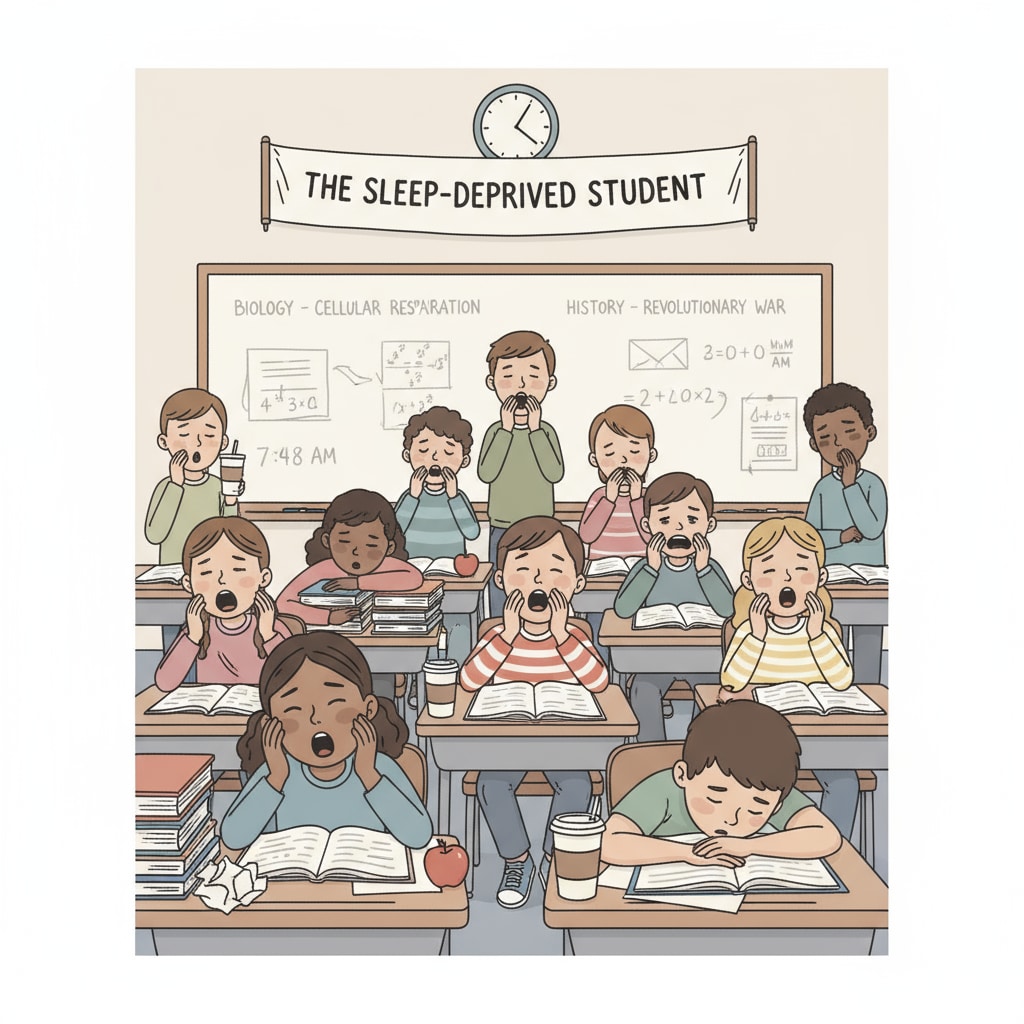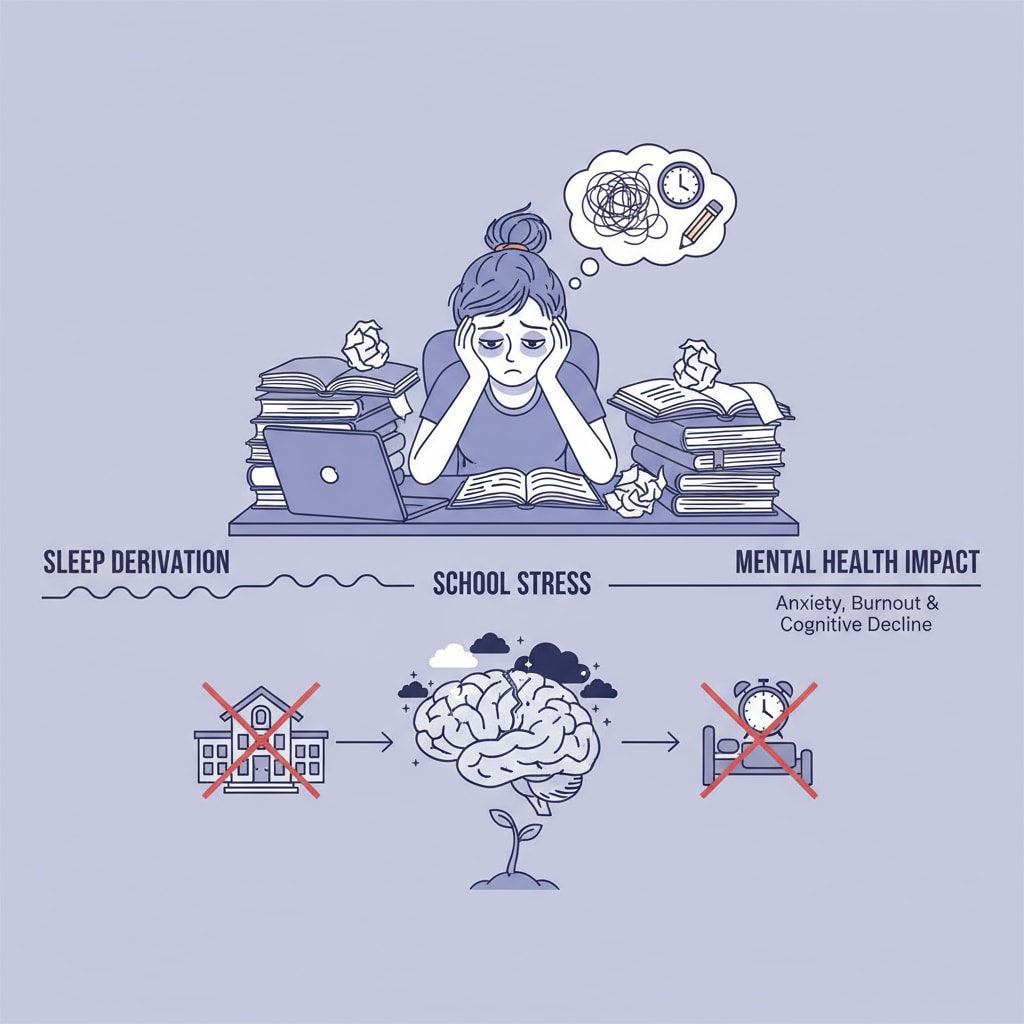Sleep deprivation, school stress, and mental health are intertwined issues that significantly impact K12 students in today’s educational environment. In the race to achieve academic excellence, students are often sacrificing their much-needed sleep, with dire consequences for their overall development.
The Alarming Prevalence of Sleep Deprivation
The demands of the K12 education system, including copious amounts of homework, early school start times, and extracurricular activities, are leaving students exhausted. According to the Centers for Disease Control and Prevention (CDC), a significant portion of students fail to get the recommended amount of sleep. This lack of sleep is not just a minor inconvenience; it’s a serious threat to their health and well-being.

The Ripple Effects on Mental Health
Sleep deprivation takes a toll on students’ mental health. When students don’t get enough sleep, they are more likely to experience mood swings, anxiety, and depression. As the American Psychological Association states, sleep is crucial for emotional regulation. Without proper rest, students may find it difficult to cope with the stress of school, leading to a downward spiral in their mental state.

In addition to mood issues, sleep deprivation also affects students’ cognitive abilities. Memory consolidation, attention span, and problem-solving skills all suffer when students are sleep-deprived. This can have a direct impact on their academic performance, making it even more challenging to keep up with the demands of school.
Readability guidance: The paragraphs above clearly present the problems of sleep deprivation among K12 students, its impact on mental health, and cognitive abilities. Short paragraphs and the use of external links enhance readability. Transition words like “in addition” are used to smoothly move from one point to another.
The Need for Autonomous Rest
Educational institutions need to recognize the importance of students’ rest. By promoting a more balanced approach to learning, schools can help students get the sleep they need. This could involve adjusting school start times, reducing the amount of homework, and providing more opportunities for students to relax and recharge.
Parents also play a crucial role. By setting a regular bedtime routine and creating a sleep-friendly environment at home, they can support their children’s sleep needs. Moreover, students themselves should be educated about the importance of sleep and empowered to take control of their own rest schedules.
In conclusion, sleep deprivation, school stress, and mental health are issues that demand immediate attention. By taking steps to ensure students get enough sleep, we can help them thrive both academically and personally. It’s time to make sleep a priority and create a more supportive educational environment for K12 students.


